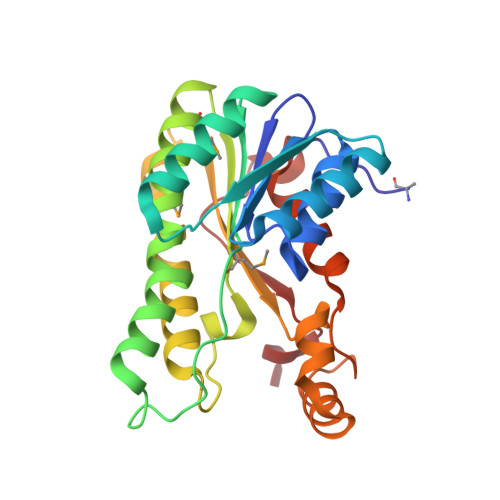Engineering Leifsonia Alcohol Dehydrogenase for Thermostability and Catalytic Efficiency by Enhancing Subunit Interactions.
Zhu, L., Song, Y., Chang, C., Ma, H., Yang, L., Deng, Z., Deng, W., Qu, X.(2021) Chembiochem 22: 3178-3183
- PubMed: 34549865
- DOI: https://doi.org/10.1002/cbic.202100431
- Primary Citation of Related Structures:
7V1Q, 7V1R - PubMed Abstract:
Leifsonia alcohol dehydrogenase (LnADH) is a promising biocatalyst for the synthesis of chiral alcohols. However, limitations of wild-type LnADH observed for practical application include low activity and poor stability. In this work, protein engineering was employed to improve its thermostability and catalytic efficiency by altering the subunit interfaces. Residues T100 and S148 were identified to be significant for thermostability and activity, and the melting temperature (ΔT m ) and catalytic efficiency of the mutant T100R/S148I toward ketone substrates was improved by 18.7 °C and 1.8-5.5-fold. Solving the crystal structures of the wild-type enzyme and T100R/S148L revealed beneficial effects of mutations on stability and catalytic activity. The most robust mutant T100R/S148I is promising for industrial applications and can produce 200 g liter -1 day -1 chiral alcohols at 50 °C by only a 1 : 500 ratio of enzyme to substrate.
- State Key Laboratory of Microbial Metabolism and School of Life Sciences and Biotechnology, Shanghai Jiao Tong University, 800 Dongchuan Rd., Shanghai, 200240, China.
Organizational Affiliation:




















